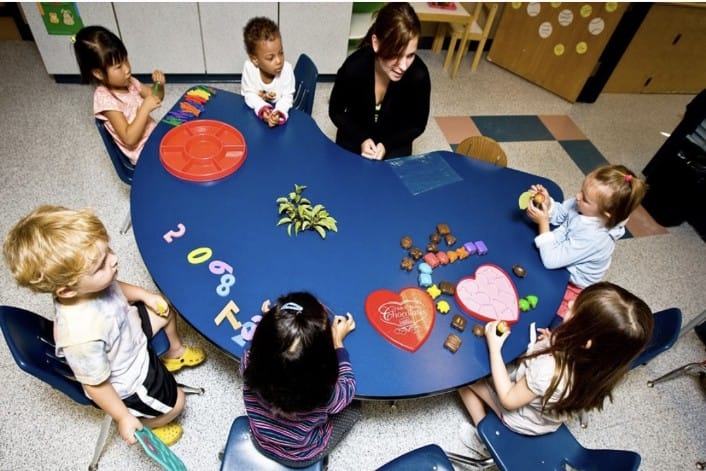Education for early childhood constitutes one of the main priorities of human development as it provides base learning throughout the whole lifetime of a particular individual.
The definition of an early childhood educator includes the crucial role these professionals play in ensuring that young children engage in experiences that foster their cognitive and social-emotional development. This paper outlines some of the activities of early childhood educators. It seeks to assert that teachers’ actions impact the young child’s learning during the early years.
Creating a Safe and Nurturing Environment
Before anything else, early childhood educators must prevent children from physical harm and embrace them in their classroom by fostering a protective feeling. The teachers should always be alert to avoid emergent incidents and to be able to handle existing risks. At the same time, they should be calm and supportive, offering comfort and understanding to help children navigate their emotions.
Facilitating Developmental Milestones
Early childhood can be noted as a period that is characterised by several developmental changes. Teachers help children learn and develop the different domains, namely the cognitive, motor, and socio-emotional domains. They establish conditions that stimulate inquiry, discovery, analysis, and synthesis. For instance, stories, riddles, and games help develop the cognitive domain, and plays and exercises in the motor domain.
Implementing a Curriculum
Using structure in activities is crucial in early childhood education as it outlines the learning experiences and their development. Early childhood educators need to adopt effective and appropriate course content that is fun-filled and informative; this includes devising teaching methods that are appropriate to the age of the children and meet the curriculum requirements. They should possess the competency of how to modify an activity to accommodate children; that is, they should be able to make the proper provisions for all children to learn, irrespective of the differential nature of children.
Assessment and Evaluation
Another reason for applying continuous assessment is to monitor each child’s progress. Preschool teachers often assess children’s activities to determine their comprehension, abilities, and conduct. These are not only academic, but they also involve social and emotional aspects as well. Record keeping also helps educators see where a child may struggle or benefit from more challenges. This information is essential in delivering instruction and informing parents of their child’s progress.
Building Relationships with Families
Early childhood educators are required to accomplish a lot of tasks. Still, the most significant one is to partner with the families. They also have the social duty of providing knowledge to the parents of their child’s progress at school and even helping the child learn. Parents participate in their child’s learning process through performance results, parent-teacher association meetings, or discussions.
Promoting Social Skills and Emotional Well-being
As important as learning in the academic area, social competence and emotional regulation are critical in early childhood. Preschool teachers are also responsible for instilling manners in children, such as how to share items and resolve disputes. They act as examples of proper social conduct and assist children in learning how to appreciate other people. Emotional welfare should, therefore, be fostered by ensuring that the children are free to voice out their feelings and are encouraged to develop a positive self-image.
Professional Development and Advocacy
Even in early childhood education, educators’ knowledge cannot stagnate, and one has to continue learning. One must familiarise themselves with the latest research findings, educational practices, and policy changes. Today’s early childhood educators participate in professional learning activities through workshops, seminars, and further education. They also fight for children’s rights to ensure that early childhood education is accredited and understood as an essential aspect of society.
Conclusion
Tasks of early childhood educators are numerous, including maintenance of safety, development, curriculum and assessment, family involvement, and social and emotional development. Their commitment and professionalism are the foundation for children who will build their success later. Continuous professional growth and advocacy highlight the importance of their role in shaping young lives. Society must support and invest in this essential profession to ensure all children have access to high-quality early education and care.





